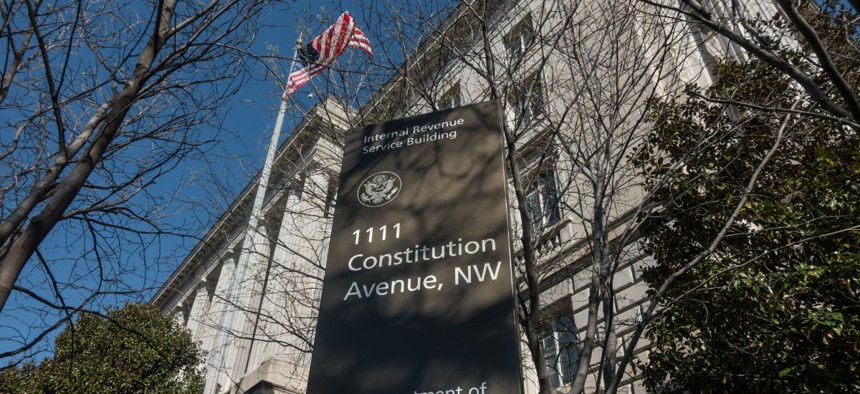IRS May Be Unintentionally Discouraging Whistleblowers From Reporting Tax Cheats
The agency failed to update a key form affecting the calculation of whistleblower awards, GAO found.
Private-sector whistleblowers with knowledge of unpaid taxes may be discouraged from coming forward if the Internal Revenue Service doesn’t improve the form it uses to collect that data, a watchdog found.
Last February, Congress changed the law to require the IRS to include penalties for foreign bank account reporting violations when the agency calculates whistleblower awards. But the agency neglected to change Form 11369, which provides the data on which award amounts for credible whistleblowers are determined, according to a report released this week by the Government Accountability Office.
Since 2007, the program has helped the tax agency collect $3.6 billion, from which whistleblowers received anywhere from 15 percent to 20 percent of the proceeds of an individual funds recovery.
“For the IRS whistleblower program to be successful, whistleblowers need to have confidence in the program’s processes and outcomes, including paying awards when a whistleblower’s information is used,” auditors wrote. “However, according to whistleblower attorneys we spoke with, this policy of award exclusions may have discouraged other whistleblowers with significant information on [foreign account] reporting and tax noncompliance from coming forward.”
In recent years, the IRS argued in court for narrowing the scope of the criminal and civil codes whistleblowers could cite to qualify for reward amounts, which are determined by interest, penalties, criminal fines and forfeitures. Congress backed the broader eligibility criteria under the 2018 Bipartisan Budget Act.
As of June 28, however, the agency had “not yet fully changed some of the whistleblower program’s policies and procedures to reflect” the new law, and Form 11369 “does not require examiners to include information about the usefulness of a whistleblower’s information” in collecting the taxes owed, GAO said.
In a sample of 132 cases from January 2012 to July 2017, GAO found 28 in which the whistleblowers’ actual role was not clear. The penalties involved totaled nearly $11 million, and if they had been included in the reward calculations, the awards would have risen by more than $3 million.
“GAO found that IRS does not have sufficient quality controls to ensure the reliability of [foreign bank account] penalty data” and thereby “risks making decision, including awards determinations, with incomplete or inaccurate data.”
Auditors recommended that the IRS Whistleblower Office modify Form 11369 to clarify the role of whistleblowers’ information in recovering due funds, and that the Internal Revenue Commissioner and a deputy develop documents and improved controls for validity and completeness.
IRS managers agreed.




